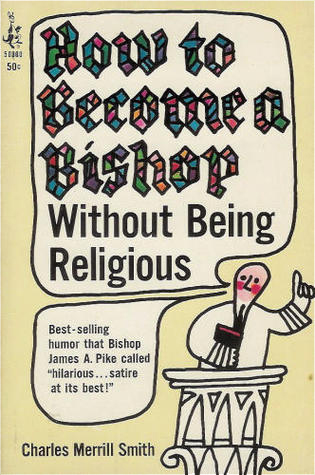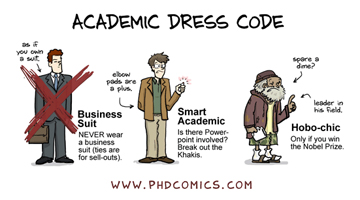|
| |
|
| |
|
|







|
|
TCHS 4O 2000 [4o's nonsense] alvinny [2] - csq - edchong jenming - joseph - law meepok - mingqi - pea pengkian [2] - qwergopot - woof xinghao - zhengyu HCJC 01S60 [understated sixzero] andy - edwin - jack jiaqi - peter - rex serena SAF 21SA khenghui - jiaming - jinrui [2] ritchie - vicknesh - zhenhao Others Lwei [2] - shaowei - website links - Alien Loves Predator BloggerSG Cute Overload! Cyanide and Happiness Daily Bunny Hamleto Hattrick Magic: The Gathering The Onion The Order of the Stick Perry Bible Fellowship PvP Online Soccernet Sluggy Freelance The Students' Sketchpad Talk Rock Talking Cock.com Tom the Dancing Bug Wikipedia Wulffmorgenthaler |
|
bert's blog v1.21 Powered by glolg Programmed with Perl 5.6.1 on Apache/1.3.27 (Red Hat Linux) best viewed at 1024 x 768 resolution on Internet Explorer 6.0+ or Mozilla Firefox 1.5+ entry views: 279 today's page views: 246 (18 mobile) all-time page views: 3248393 most viewed entry: 18739 views most commented entry: 14 comments number of entries: 1215 page created Mon Apr 21, 2025 12:27:32 |
|
- tagcloud - academics [70] art [8] changelog [49] current events [36] cute stuff [12] gaming [11] music [8] outings [16] philosophy [10] poetry [4] programming [15] rants [5] reviews [8] sport [37] travel [19] work [3] miscellaneous [75] |
|
- category tags - academics art changelog current events cute stuff gaming miscellaneous music outings philosophy poetry programming rants reviews sport travel work tags in total: 386 |

| ||
|
The Hong Kong retrospective's delayed once again, what with several strands converging irresistibly for a topical post. The first hints arose with the International Conference on Cohesive Societies conference here last month, attended by representatives from various faiths and luminaries such as Karen Armstrong, author of A History Of/The Case For God (covered back in 2016). This was followed by the news that the organizations garnering the most donations locally were generally educational and religious, with the National University of Singapore and the New Creation Church topping the list with takings of S$227 million and S$122 million respectively. Then, a few days ago, it was hinted that free speech would be further curtailed through choice amendments to the Maintenance of Religious Harmony Act. This came as I chanced upon Twilight of the Money Gods, which seeks to view economics through a religious lens (rather than a physical one, as in Mirowski's works). Today's exposition will be framed by another - certainly funnier - book, though:  The only manual a worthy divine needs [N.B. Full text of this out-of-print classic available online!] (Source: goodreads.com) Truth & Mistruth Upon the death of a unified China's first Emperor, an eunuch decided to gauge the loyalty of the court officials to his puppet successor. He arranged for a deer to be brought before the court, and praised it as a superb horse. A few brave officials protested the obvious - that it was a deer, and not a horse. They were executed. Others bowed their head and kept silent, unwilling to acknowledge the farce, while also fearful of offending the new Emperor's favourite. They were exiled. Some loudly praised the deer as indeed a magnificent horse, and lauded the eunuch's eye for stallions. They were promoted. Such tendencies, alas, persist to the present; honesty and truth is in actuality scarce treasured by humankind as a rule. Typically, it begins with "does my ass look fat in this", progresses through "sure, of course I'd love the in-laws to stay over for a week", and ends somewhere like "clearly we can run large persistent aggregate deficits without real consequences". Many will rationalize the expected untruthful responses, under the umbrella of discretion or social savvy. This is entirely understandable, inasmuch as it transfers or defers the costs. The lady might eventually be upset that her skirt was two sizes too tight; the in-laws, who actually would much rather be put up in a nice hotel too; future citizens, who wind up bemoaning the previous generations' profligacy and rejection of firm leadership. But they were happy to be lied to before... Untrammeled Power The astonishing observation about humans, then, is not so much the dishonesty, but rather the banality of its expression. In certain respects, it is forgivable, say in the customary response to a greeting: "How are you? Fine, thank you."; the cashier, who has somehow escaped being replaced by an automated checkout line, is not likely interested in a detailed recounting of one's poor life choices. In the case of organized religion, however, the dogmatic insistence on the acceptance of statements that would be deemed blatant falsehoods in just about any other context - e.g. deer as horse, as we have seen - can hardly be seen as anything other than a pronouncement of absolute power and authority. Lo, the priest begins. A man born of a virgin rose into the sky. Another who rode a flying donkey split the moon in half. A baby walked immediately after being born, and a lotus flower bloomed with each step. Surely then all this is some allegory or colourful myth? Too often, there is no straight answer, for if one did in fact admit that his prophet could not, in fact, multiply loaves, the fellows next door who insist that theirs could turn night into day naturally gains the ascendancy. Other, more honest, scholars who state mere facts such as "apples fall from trees", moreover garner rather less devotion. There is no mystery in it. The apples fall for everyone, whether they believe it or not. What about it - figure out the math? Therein lies the power. If a man is a scholar of the latter type, and is expected to present a rational justification for his actions and opinions, one might expect certain unhappy outcomes to be less likely to pass - "the apple fell from a tree; therefore, enslaving people is acceptable" is, hopefully, patently ridiculous. However, consider something like "Our deity can throw a mountain into the sea; therefore*, we must invade Iraq." The opening assertion already places the argument outside the realm of logic. The second statement not following from the first then breaks no new ground; it is unremarkable. [*several intermediate steps omitted for brevity] It is this disregard of rationality, then, that is the hallmark of organized religion. Impressionable children are inoculated against logic through the liberal memorization of entirely unreasonable axioms, and woe betide the precocious kid who dares question. How can a man float into the air without aid? Having demurred thus, the recalcitrant finds himself friendless, or painfully dead in certain environments even in the present. Before, recantation was oft sought through torture, but frankly, what does that prove? Stretch a fellow on the rack for long enough, and one would likely be able to get him to admit that his mother was a hamster. No, it is hard to see this as anything but the crudest assertion of power. It should be clarified here that I am not claiming that everything important can be handled through rational means - sure, some things can only be felt by the heart, and all that; I am, however, of the opinion that the record of organized religions on these heartfelt matters has simply not been very good. Religious vs. Pious It is, however, probably also unfair to caricature members of said organized religions as entirely unreasonably bellicose in spiritual affairs. Most such assemblies are entirely respectable institutions, one hopes, that will actively refer true-true believers (as opposed to merely ordinary "true believers", which their congregation indubitably qualifies as) for prompt medical care, with a view to the safety of the community at large. Some are even entirely serviceable as purveyors of entertainment. In the same way that I cannot impugn the freedom of zealous boyband or K-pop fans to splurge most of their salary on concerts, recordings and other merchandise, I can hardly begrudge the accidental but outstanding success of more classical productions in this respect. I further reserve a special esteem for wits such as the Irreverend Smith, who have the good humour to be not at all serious about the whole organized religion business, while going about his duty. In this, he fits the trope of the sensible and irreligious (these traits tend to be correlated) biscuit-nibbling English vicar, who attends faithfully to the well-being of his parish, while remaining blissfully untroubled by any pretense at actual belief (although it would be exceedingly rude to call him out on it). The first big lesson in How to Become a Bishop Without Being Religious, then, is to clearly distinguish religious from pious. A truly religious man, he writes, is inner-directed (think perhaps Pope Celestine V, or in the secular sphere Cincinnatus); his conviction derives directly from his God, and on matters of faith he is inflexible. Thus, Rev. Smith correctly ascertains that truly religious men tend to "...make enemies unnecessarily [and soon become] an embarrassment to the church". Far more likely to be successful in the church, then, is the pious man, who consciously tailors his external appearance and behaviour to match what the average churchgoer would regard as religious (Rev. Smith hastens to add that it is unnecessary to discuss the finer details of religious vs. pious in public)  At a certain point, ministerial dignity has to be maintained [N.B. The lambo was auctioned off for charity in this case] (Source: gq.com) The rest of the relevant chapter contains excellent advice on how to construct this extrinsic image. Rev. Smith recommends a sombre off-the-rack two-piece suit as work attire, with newer and gradually more-expensive suits rotating in as Sunday best. Clerical garb, while seemingly the most appropriate, is not recommended assuming a Protestant denomination, since that could cause confusion with the Roman tradition. An exception is when ministering in rough neighbourhoods, to help protect against being shot or robbed out of hand. Doctoral robes, however obtained, should be flaunted. Vehicle-wise, Rev. Smith provides a handy table indicating acceptable car models and expected price ranges, depending on the wealth level of his parish. Given that the guide was published in 1966, the information can be regarded as slightly out-of-date, so suffice to say that the idea is to project a genteel respectability, that of being slightly poorer than the congregation at large (but not too much, lest they be unduly shamed at their lack of largesse) Smoking, drinking, gambling, profanity and related sins are, definitely, out too; the Rev. advises the cultivation of a "slight frown and brief, tolerant, superior smile", for application when a congregant gets out of line. Non-vigorous recreation is recommended - long walks are always safe, while pastimes such as chess need be carefully considered, lest the clergyman be thought to be "too intelligent" (college communities excluded). A dash of gluttony can be tolerated - nay, even advisable - to display the generosity of his parish. Literature wise, Rev. Smith advises subscriptions to entirely bland publications such as Reader's Digest and Time, with a hint of high literature (again, not too much). If art is displayed, they should be clichéd pieces such as Head of Christ or The Last Supper, as the "arty" image and the pious image are fundamentally incompatible, in Rev. Smith's opinion. I hope that the relevance of the above to the construction of an academic image is self-evident. Personally, an exception should be made for technical specialists - I'd honestly be suspicious if a self-proclaimed hacker turned up in suit and tie instead of hoodie and jeans, and the recognized uniform of elder gurus is that of scruffy beard, unkempt and optionally-stained (Hawaiian) shirt and maybe socks and sandals (i.e. "homeless couture"). Note that this look is also far from uncommon amongst tenured profs in more scientific fields (as opposed to say business and finance, where they remain beholden to keeping up appearances)  Rate of hair-brushing found inversely correlated with tenure (Original source: phdcomics.com) Rev. Smith also recommends that the ambitious pious man be married for several reasons: that his wife be able to provide additional services to the church such as Sunday school teaching, to avoid resentment from female congregants (unless he's going for the dashing boybander vibe to draw them in), but most importantly as the mainstream Protestant position was that "a clergyman who remains unmarried for more than a year after graduation from seminary is suspected of being abnormal, immoral or chicken". I always thought this attitude wise of them, compared to the Catholic insistence on priestly celibacy - the Big Guy Himself unequivocally stated: "go forth and multiply"; some disciple comes along and countermands this with some incel ramblings, and they all just go along with it? Essential Preaching Rev. Smith, as with H.L. Mencken, recognizes that preaching - or, at least, the content of the preaching - is ultimately unimportant in the grander scheme of things, despite it being the distinguishing role of a clergyman. Rev. Smith recommends "1000 parts style to 1 part content" as a good proportion to maintain, and that "...no one cares very much what you say when you preach, as long as it is not radically controversial and disturbing. Your acceptability as a preacher depends almost wholly on how you say it. A really gifted preacher can deliver an exegesis of 'Mary Had A Little Lamb' or extol the virtues of the single tax and send the congregation home in a spiritual trance, while a bumbler can bore it to death with a sensible and relevant exposition of the parable of the prodigal son". [N.B. The above clearly also applies to university lecturers. However, such teachers operate under an additional handicap - their students may have to be tested on the retention of some minimal knowledge at the end of the semester. As such, their delivery unavoidably has to be biased more towards the actual material, since repeat customers tend to be unamused] The good reverend then suggests to mix-up three basic objectives - make them laugh, make them cry and make them feel religious. About that first, Rev. Smith advises that clerical joking actually takes quite some skill, because unlike professional comedians, many popular and reliable gags would be regarded as lewd, unbecoming or simply unkind. To illustrate an appropriate pick, Rev. Smith gives "The Joys and Advantages of Being a Christian":
Rev. Smith regards the above joke as near-ideal, because the "middle-class, standard-brand Protestant congregation is anti-Semitic" (but not blatantly so); thus, in one small quip, the pastor has slyly managed to express that "(a) the Jews are actually like we all think they are, (b) if Jews would only become Christians they would immediately become generous, warmhearted and unselfish like us, and (c) the Christian religion is demonstrably superior to the Jewish religion, and by implication, to all other religions". Explained this way, it is undeniable that hitting such a trifecta is no easy task! Having softened them up thus, the next step is naturally to pull out the sob-story of the day, and appeal to the congregation's better nature (now, it should be noted that this skill can be entirely good, if turned towards genuinely needy cases). Some speakers are simply naturals at making such appeals, although one supposes that this is a skill that comes with practice - Rev. Smith stresses the importance of preaching without notes, to attain the highest levels of credibility. To objectively illustrate preaching ability on a scale with contemporary personae, I'd put the current POTUS as a 10, given his unprecedented approval ratings with his congregation (because, let's face it, that's what matters); Lee Kuan Yew and Kong Hee, then, would be about a 9 with their crowds, while Reagan and peak Obama - who I'll admit is an excellent conventional orator, even if I may not align on his stands - rate about 8. Bernie Sanders was in the 7 to 8 range in 2016, Hillary perhaps near 6 at her best, and fellas like Jeb!, Kasich and Elizabeth Warren sub-5, just as a reference. Staying with politics for a bit, Rev. Smith cautions against being specific as to one's religious position. Even if totally untrue, it is expected of a responsible clergyman to keep up the fiction that his religion's moral stands are divinely-ordained and therefore eternal and unchanging. For example, one might handle the contradiction of being utterly segregationist according to church doctrine in the past, to ardently preaching against racism today, but why risk it? Far better to be vague and non-committal. In particular, never bring up local controversies with anything more than platitudes, and instead rail against faraway injustices. As Rev. Smith writes, "You can denounce the government of South Africa with all the vigour at your command, but be careful about denouncing political corruption in your own city, because some of your good members might be involved". This should also be obeyed in academic circles. As one of my favourite posts on r/singapore about Sinkie students gone Oxford goes, aspiring social minglers should "[learn] to distinguish the right kind of woke (environmental charities and effective altruism) from the wrong kind (Rhodes Must Fall) and shut up about the latter while running to be the face of diversity initiatives". Rev. Smith also goes into what makes hymns desirable or not in a later section. "A Mighty Fortress", for instance, is not very good because it "gives all attention and praise to God and none to the worshipper" throughout, and "lacks any warm, human, comforting, inspiring sentiment". "Blessed Assurance", in contrast, is worshipper-focused (lots of "mine", "me", "I", etc), and can be depended on to evoke nostalgia due to its popularity. This is also the case for what Rev. Smith regards as the best hymn of them all, "In The Garden" (some musical theory analysis is also given, but I alas would know nothing about that). Bad hymns would then contain uncomfortable and situationally-awkward lines such as "...Take my silver and my gold/Not a mite would I withhold..."; as Rev. Smith puts it, imagine the president of the local bank chanting that! Choosing Friends & The Importance of Money - Will Durant And, make no mistake, bank presidents are exactly the sort of valued member your church wants, so Rev. Smith emphasizes. He covers the harsh realities of religious finance in a chapter entitled "The Administration of a Church, which is A Polite Phrase for Raising Money", which to me was the most directly transplantable to academia, of the lot of them. Replace some nouns, and there you have a wonderful primer for freshly-minted bright-eyed assistant professors. Rev. Smith's wisdom begins thus: "A congregation (read also: university/lab) is fundamentally a business enterprise. No one mentions this to the ambitious young theologs (read also: assistant profs) during their period of professional training... do not plunge out of seminary (read also: postdoc stint) and into your first pastorate (read also: assistant prof contract) heart and mind aquiver with the solemn thought 'I am now in charge of a community of faith (read also: community of the mind)'. To do so is to invite professional disaster at the first stage of your career. What you are in charge of is not a community [of whatever] but a business enterprise". It is a sordid truth seldom mentioned, that by and large, the final metamorphosis of a clergyman or professor at the pinnacle of their career is into a money-grubber towards the sustenance of their mini-empire (recall, this is supported by evidence on the top donation-wheedlers locally). One might, conceivably, become a celebrated theologian or theoretician without much in the way of funding. It is however probably unwise to bank on that. As Rev. Smith so accurately describes, "Fundamental to success here is your self-image as the chief executive officer of the Lord's corporation... as the member of a private club". In this case, however, the church is at a disadvantage compared to the lyceum. A reputable university cannot be faulted for imposing admittance standards, and indeed, the stricter these standards are, the more prestigious (and richer) the university tends to become. The same goes for top journals, at which it is a point of pride to seek single-digit acceptance rates. However, as Rev. Smith reminds, "...theoretically anyone who wishes to may join a Christian church. We aren't supposed to exclude anyone". The unsaid problem is the possible quiet ghettoization of one's church, if the membership distribution tilts overly to the unwashed end. But rest easy, according to Rev. Smith, "...the trick is to load your membership with enough of one kind of people so that other kinds of people will not ask to join"!  But in both cases, wow 'em with grand architecture! (Source: www.trin.cam.ac.uk) Rev. Smith notes that in each community, there usually are one or two "status churches" that high society gravitates to, and that once established thus, it is extremely difficult for a status church to fall out of that class, regardless of the actual quality of preaching and education (the application to the Ivies etc need not be belaboured, I hope). The goal of a pastor, so Rev. Smith says, should be to turn his establishment into said status church, though judicious targeting of new members ("...just observe what happens when a new doctor or well-to-do lawyer moves to town. The status churches go after them like hungry tigers chasing a tasty young gazelle. The winning church will gloat, and the loser or losers will try to hide their chagrin") Towards this end, Rev. Smith has very kindly included a handy Status Value Scale Index, to help inexperienced newbie pastors out. It starts from old aristocratic family scions at 10 points, then 9 points for a multimillionaire (rarer back in the 1960s), and 8 points for single-millionaires. Big businessmen and specialist doctors rate 7 points; G.P.s and dentists rate 6 points, same as corporation and tax lawyers. Criminal and divorce lawyers get 5 points. Academic professors weigh in at 4 points, with teachers going from 3 points (for administrators) to 1 point (for grade school ma'ams - same as chiropractors). Celebrities rank from 7 to 9 points, accounting for personal taste. Below this, alas, we have clerks, stenographers, other white-collar flunkeys and factory supervisors, who Rev. Smith describes as "good people, no doubt, but they confer no status on the organization". Entering negative territory, we come to blue-collar factory workers at -1, and day labourers at -2. Rev. Smith then gains my further respect here, by not shying away from racial animus, which should be understood in the context of Sixties WASP-culture America. Japanese and light-skinned South Americans are assigned a further -3 penalty, with Chinese at -5. Dark-skinned South Americans and light-skinned Negroes get -7, and dark-skinned Negroes complete the scale at -10. The problem, as Rev. Smith goes on to address, is that while a status church doesn't want negative-rated fellows tanking their prestige (still in evidence today with Ivy League colleges and Chinese), they cannot openly admit it, and moreover are usually desirous of looking nominally "liberal, decent, Christian in attitude and integrated". The best strategy, the clever Reverend goes on to suggest, is to adopt a "coal-black, poor, semiliterate Negro bachelor, the 'Old Black Joe' type. He is no threat whatever to any of your people (a Negro schoolteacher, for example, would be better educated than some of your staunch members and they would resent this bitterly). And he would remind them of the days when racial relations were clearly defined and tranquil, not ambiguous and tension-filled as they are in the present society. In short, he would be looked on with affection as a pet. He would be coddled, protected and prized. And he would not encourage other Negroes to follow him because they would be a threat to his privileged position". I make no further comment as to the academic implications. Social Aspects While personal ego is officially disdained in both the ministry and academia, it is unavoidable that the men (and lately, women) who have dedicated much of their life to these institutions nonetheless wish to feel important. It is probably not a coincidence that both these esteemed cultures have hit upon the same solution: form committees. As Rev. Smith writes: "The ambitious young divine wading into his first parish is often confused by the abundance of church committees through which he is supposed to carry on the work of his ministry. There is a committee for the promotion of missions, a committee on music, a committee on ushering, a committee on social relations, a committee on worship, a committee or board of Christian education, a house committee, a parsonage committee, a pulpit committee, a committee on finance, a benevolence committee, an interchurch relations committee, etc (it goes on for eight or nine more lines)" This must be familiar to those in university departments. Rev. Smith goes on to inform the reader of the true nature of these manifold committees: "What you must understand is that the committee structure of a church (also: university) was never intended to be used. It is strictly for window dressing, to give the appearance of a democratically operated organization... [it] was devised to give the appearance of everyone in the church (university) feverishly engaged in [some proper] work." Now, I must add here, it does no good to be too cynical of this state of affairs. While most committees are admittedly bunkum, being invited to participate still indicates a smidgen of recognition (and another item on that C.V.); it also implicitly certifies that the individual involved has some slight facility towards normal social interaction, a trait that is unfortunately sometimes missing in otherwise serviceable academics. Furthering my suspicions of the close connections between church and college, Rev. Smith confirms that only two committees are of any real importance: the pulpit (read: promotion) committee and the finance (read: grants) committee, since they control the tenure and salary of the aspiring clergyman. Sadly, unlike their priest-equivalents, junior academics usually have no say in the formation of these two. The Kings Of Fund Raising It felt only appropriate to complete the circle, by featuring the champion moneymakers of the year. Honourable mention goes to the banks engaged in the local savings-rate war, with CIMB knocking the "torture of multiple conditions to earn high interest" described last month (their rates are simply uncompetitive though; was always partial to the cute DBS ad myself)  This is called entrepreneurship in its purest form (Source: junkee.com) It is to some regret that she didn't take the top prize with her latest caper, if only due to the stiffness of the competition; but a girl who's managed to sell her used bathwater at US$30 a jar must be doing alright in my books, however you slice it - and she didn't have to walk on it or turn it into wine either. Sadly, she wasn't able to keep up with the demand after a 500-jar run for her hydro-homies, though she did at least try her best with US$10k storage tubs of said blessed liquid. Humanity is wonderful, isn't it? Every day, in every way, his TROLL POWER gets stronger Completely sold out (like his rallies) the initial stock of OVER NINE THOUSAND, by the way. And hey, they're recyclable - note a local fast food chain offering a free metal straw with selected meals, and consider the tradeoffs with analogy to plastic bags and reusable bags. Very stable genius, indeed. Next: Mundane Enjoyments
|
||||||||
 Copyright © 2006-2025 GLYS. All Rights Reserved. |
||||||||